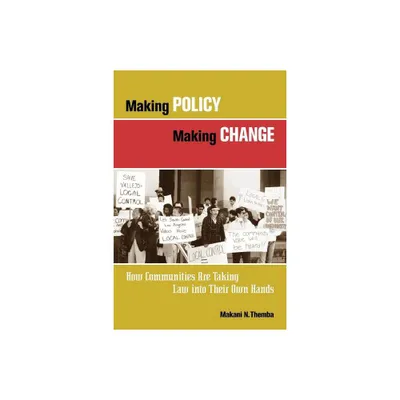Home
Managing Europe from Home: The changing face of European policy-making under Blair and Ahern
Loading Inventory...
Barnes and Noble
Managing Europe from Home: The changing face of European policy-making under Blair and Ahern
Current price: $130.00


Barnes and Noble
Managing Europe from Home: The changing face of European policy-making under Blair and Ahern
Current price: $130.00
Loading Inventory...
Size: Hardcover
*Product Information may vary - to confirm product availability, pricing, and additional information please contact Barnes and Noble
As two of the longest serving prime ministers in Europe, Tony Blair and Bertie Ahern were in power during one of the most tumultuous periods of European integration. This book offers a unique and fascinating insight into how they responded to the demands and opportunities of European Union membership at the national level. Drawing on extensive interviews with key figures, it explores how the two leaders sought to radically reshape the EU policy making process in the UK and Ireland in order to further their strategic policy agendas. It therefore asks three key questions. How did the national EU policy process change between 1997 and 2007? To what extent did the UK and Irish policy processes converge or diverge? Did the reforms enhance the projection of national policy?
These important empirical and comparative questions are related to broader theoretical and conceptual debates concerning Europeanisation. By employing highly innovative conceptual and analytical frameworks, the book considers what these reforms tell us about the nature of the ‘EU effect’ in different member states. Do governments simply adjust to EU-level pressures for change or try to adapt strategically in order to maximise their influence? Are the changes attributable to political agency or do they derive from longer-term structural developments in Brussels? These timely questions should be of great interest to both students and academics of European, British and Irish politics, policy practitioners within government, as well as anyone concerned with understanding the politics and policies that defined these two influential prime ministers.
These important empirical and comparative questions are related to broader theoretical and conceptual debates concerning Europeanisation. By employing highly innovative conceptual and analytical frameworks, the book considers what these reforms tell us about the nature of the ‘EU effect’ in different member states. Do governments simply adjust to EU-level pressures for change or try to adapt strategically in order to maximise their influence? Are the changes attributable to political agency or do they derive from longer-term structural developments in Brussels? These timely questions should be of great interest to both students and academics of European, British and Irish politics, policy practitioners within government, as well as anyone concerned with understanding the politics and policies that defined these two influential prime ministers.


















